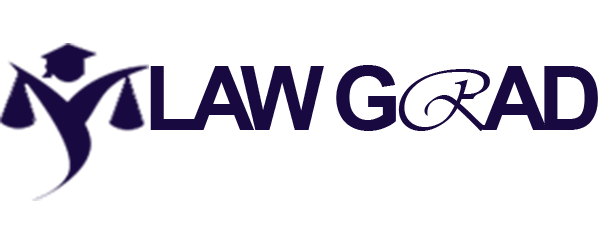Can Taliban de facto disposition in Afghanistan be legally recognized as a de jure government?
The tragic events unfolding in the conflict-ridden Afghanistan today are not limited to the internal domestic strife therein. The precarious situation the Afghans are faced with, has become much of an internationalized issue as it could bear potentially drastic consequences for the future of Afghanistan's neighbors and the world at large in terms of their national security, regional political stability and world peace. In this blogpost we are going to look at legal perspectives relating to the biggest political, diplomatic and legal question before the international community in 2021, namely the legal recognition of the de facto Taliban control in Afghanistan.
The granting or refusal to grant recognition to a government is not purely a matter of international politics and diplomacy, there are some legal aspects to it and legal consequences arising out of such recognition. First of all, it is significant for the reader to understand that the question before us is not with regard to the 'state' of Afghanistan, but with regard to the 'government' of Afghanistan. The continuity of state terminates only when its population or territory undergo changes. However, this is not the case in Afghanistan today. The state of Afghanistan continues despite the fact that its internal legal regime has fallen into the hands of Taliban militants. Therefore our focus should be on identifying the tests of recognition used in conferring de jure status to a newly formed government. The tests used in determining statehood as set out in Article 1(1) of the Motevideo Convention on Rights and Duties of States 1933 are not in issue here and therefore they are irrelevant considerations in this context.
Has Taliban secured de facto control in Afghanistan? Yes, it has.
Despite Taliban has conquered swaths of territory and the entire internal governmental mechanism within Afghanistan through force and extra-legal means, as of yet there has not been a complete formal transfer of power. The transition of governmental power has not begun to unfold yet. Nevertheless Taliban affirmed their de facto control by merely establishing effective territorial control. A de facto government is one which wrongfully or precariously possesses powers of sovereignty. Taliban's de facto control is however achieved by such wrongful, illegitimate and unlawful means. Therefore the origins of their de facto control has no legitimacy. Such an illegitimate government as the one Taliban has formed, is referred to as a de facto government under the international law. As far as recognizing governments under international law is concerned, the character of such a de facto government does not attribute full legal recognition to a government. It is only the de jure status which would confer such full legal recognition to a government.
What are the predominant legal tests of recognition used to confer de jure status to a government?
The area of international law dealing with recognition of governments is not static. It remains somewhat flexible for countries to put more emphasis on one legal test than another test in granting recognition to a government. There is also a duty on part of the states collectively to recognize de jure status of a newly formed government, when required qualifications and necessary conditions are fulfilled. The principle of 'state independence' imposes a duty on States to accord due recognition to a new government which has fulfilled the necessary conditions to qualify for de jure status. Withholding such recognition to a government deserving de jure status would deprive it of the right to enjoy benefits usually available to a juristic personality under international law.
Effective control, stability and permanence
The principle of effectiveness coupled with stability and reasonable prospect of permanence is the most frequently used test to determine recognition of a new government. It requires as a condition of granting de jure status, the effective control of territories. The effective control is one which is firmly established within the conquered territories. But such effective control unless accompanied by stability and permanence does not qualify for de jure status.
True, Taliban exercises effective control of the Afghan territories, but this notion of effective control alone is not sufficient to earn de jure recognition from the international community as a de jure government. Let alone the recognition from abroad, Taliban's de facto rule has not even earned legitimacy from its people, the Afghans. Hundreds and thousands of Afghans are desperately fleeing the country and Taliban is carrying out door-to-door manhunt of supporters of the previous government. This is a real indicator of the overwhelming fear among the population towards Taliban control, and certainly a denial and disapproval of the Taliban coming into power. In modern international law, mere dry power of territorial control does not confer legitimacy on some militia who claims themselves to be in power. The presence of express approval from a substantial number of the population within its territories is the most crucial and determining factor. Such expression of national will indicates absence of resistance to the de facto rule and it is what confers legitimacy on a de facto government.
Reflecting on the element of permanence, it is appropriate to mention at this moment that there is no reasonable prospect of the previous government coming back to power. There has also been talks of presence of a legitimate care taker president in the country in the absence of the erstwhile Afghan leader Ghani. According to Article 60 of the Afghan Constitution 2004, Vice President assumes the position of legitimate care taker leadership in the absence of the president. But given the demoralized state of Afghan military forces coupled with continuing pull-out of American troops from the country, it is very unlikely that the former government will have any chance of re-instating their government on their own. President Ghani who is in exile has also not claimed his government still has control over Afghanistan, nor has he acknowledged the illegitimate disposition of Taliban. But amidst the continuing withdrawal of American troops and Joe Biden's defending stance on it, support from any foreign country to re-establish the former government is highly unlikely. In these circumstances, the Taliban will probably continue to exercise de facto governmental powers, despite non-recognition of it as a de jure government by the international community.
Willingness to fulfil international obligations
The most weighty and the most popular test of recognition is the willingness to fulfil and discharge international obligations. But for some countries like Pakistan, Saudi Arabia and UAE, the recognition has been purely a political matter. In order for a government to qualify itself as a de jure government, it must oblige to protect and respect human rights and ensure safety and protection of diplomats and foreigners within the country. Currently Taliban has intensified its hunt for Americans and supporters of the former regime, raising alarm bells about possible mass-executions of opponents and human rights violations under their rule. Extra-judicial revenge killings and gunning down opponents are continuing even after Taliban has seized power and promised to uphold international obligations including inclusivity and women's' rights. Generally a government must comply with UN Security Council resolutions to attract international recognition. Women's rights are also at stake under a fundamentalist rule like that of Taliban's. Mere statements issued by Taliban promising to respect women's rights are just not convincing and it's very likely that Taliban will go back on its words with its adherence to strict interpretations of sharia law.
The origin of legitimacy
The origin of legitimacy is another test of recognition. This test is concerned with how the revolution took place or simply the method of seizing of power. It is manifestly clear that Taliban consolidated power in Afghanistan through sheer force and extra-legal means. They committed acts of terrorism and extra-judicial killings and gunning down innocent civilians in the course of seizing power. Thus, in these circumstances, a Taliban-run government would only be a pariah state outcast by the international community.
Has Taliban been in de facto control of Afghanistan before? Yes, it has been.
After the fall of Soviet Union and Soviet-backed People’s Democratic Party of Afghanistan (PDPA), the Taliban formed the Islamic Emirate of Afghanistan in 1996 with the support of Pakistan and Al-Queda. But Taliban failed to set up an internal administrative mechanism and to secure stability in the country due to internal fights between several of their tribal factions. During the time of their short-lived disposition of power, the Taliban control was characterized by totalitarianism and strict enforcement of sharia law. As a result the Taliban, despite exercising de facto control, failed to attract recognition from the international community. Only Saudi Arabia, Pakistan and UAE recognized Taliban-run government as the de jure Afghan government. But such recognition by a few countries alone is not conclusive of authentic legal status and juridical existence under the international law.
Looking at the overall picture, as the world is preparing for a new reality in Afghanistan under Taliban rule, one thing is becoming clear. Taliban is preparing the country for a return to dark, gloomy days with re-imposing regressive laws under their fundamentalist ideologies of sharia law. In these circumstances, international recognition of Taliban as the legitimate government of Afghanistan is very unlikely.






No comments:
Post a Comment